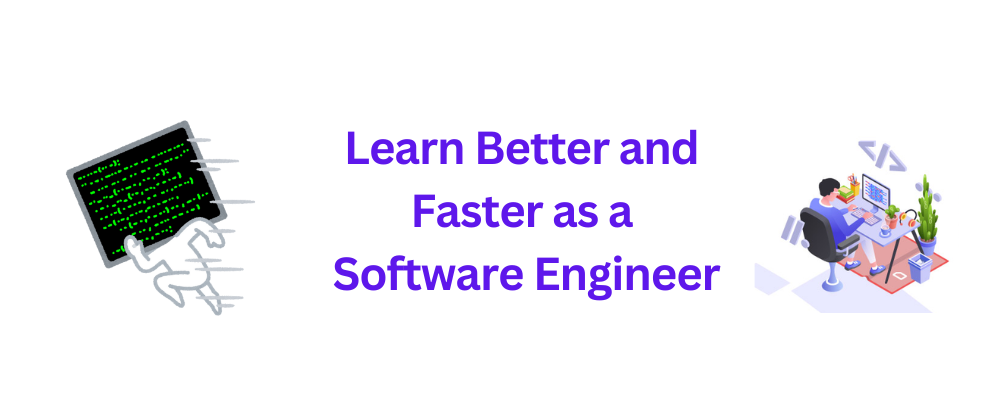How to Learn Better and Faster as a Software Engineer
The field of software engineering is ever-evolving, where tools and technologies that dominate today might fade into obscurity tomorrow. To remain relevant, software engineers must embrace a culture of continuous learning. Drawing from personal experience, I’ve compiled five key strategies to help you learn more effectively and efficiently.

1. Register Your Curiosity
Human beings are inherently curious. When you encounter something fascinating—be it a concept, tool, or framework—note it down immediately.
- Why this works: Curiosity naturally drives engagement, eliminating the need for external motivation.
- How to do it: Use a note-taking app to capture your thoughts. Write not just what intrigued you but why. For example:
- "Learn about cellular automata because the Game of Life was fascinating."
- "Explore Redis internals after being amazed by its advanced data structures."
Revisit these notes periodically, as this helps you rediscover and act on your initial interests.
2. Jump Start
Procrastination is the enemy of progress. Rather than waiting for the perfect moment or the best resources, dive in immediately.
- Key tip: If you’re starting from scratch, any resource will do. Don’t waste time seeking perfection at this stage.
- Practical advice:
- If you’re learning about a database like CockroachDB, don’t wait to find the ultimate guide. Start with any available documentation or tutorials.
- Use small, uninterrupted time slices to study instead of waiting for large blocks of free time.
3. Do the Laundry
We often romanticize learning, imagining the grand outcomes of mastering something new. However, true learning comes from hands-on practice.
- What this means: Avoid endless tutorial-watching without implementation.
- How to implement:
- Set up your local or remote IDE (e.g., Replit) and start coding or experimenting.
- Implement concepts even if it's just the core idea. For instance, after reading a research paper, try coding its central algorithm.
- Don’t just theorize—practice exposes limitations, strengthens understanding, and builds real-world skills.
4. Follow the Inverse Power Law
Jumping directly into advanced topics might seem exciting but often leads to frustration. Instead, spend significant time on the basics.
- Why basics matter: A strong foundation makes it easier to grasp complex ideas.
- Example:
- If you’re curious about how large language models (LLMs) work, start by learning neural networks and calculus.
- For database internals, understand indexing and ACID properties before exploring advanced optimizations.
5. Juggle and Time Box
Monotony and distractions can derail your learning journey. Combat this by working on multiple topics simultaneously and setting clear time limits.
- How to juggle:
- Select at least two subjects or skills to learn in parallel. If one becomes tedious, switch to the other.
- For example: Study Go while also exploring Redis.
- How to time box:
- Allocate a specific timeframe to each topic. For instance, dedicate three months to learn Go and evaluate your progress after one month.
- Recognize when to quit if something isn’t aligning with your interests or goals.
Conclusion
By applying these strategies, you can supercharge your learning and growth as a software engineer:
- Register Your Curiosity: Capture and revisit intriguing ideas.
- Jump Start: Act now, worry about perfection later.
- Do the Laundry: Prioritize implementation over endless theory.
- Follow the Inverse Power Law: Build a solid foundation before tackling advanced topics.
- Juggle and Time Box: Avoid burnout and distractions by diversifying your focus and setting limits.
Continuous learning doesn’t just keep you relevant—it helps you grow into a better engineer every single day.
Thank you for reading!
I hope this blog post provided valuable insights about how to learn better and faster as a software engineer. Follow for more Insightful Computer Science Knowledge: shubhadipbhowmik
